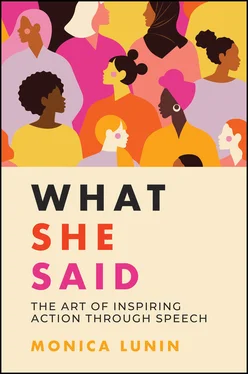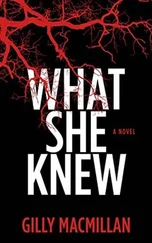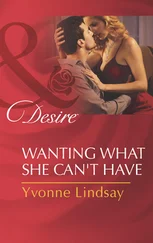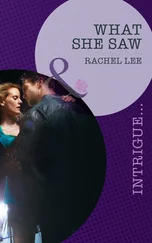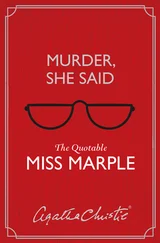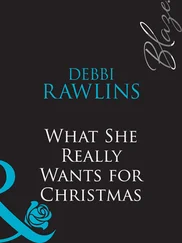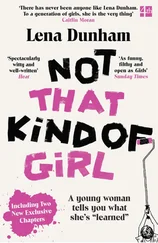Monica Lunin - What She Said
Здесь есть возможность читать онлайн «Monica Lunin - What She Said» — ознакомительный отрывок электронной книги совершенно бесплатно, а после прочтения отрывка купить полную версию. В некоторых случаях можно слушать аудио, скачать через торрент в формате fb2 и присутствует краткое содержание. Жанр: unrecognised, на английском языке. Описание произведения, (предисловие) а так же отзывы посетителей доступны на портале библиотеки ЛибКат.
- Название:What She Said
- Автор:
- Жанр:
- Год:неизвестен
- ISBN:нет данных
- Рейтинг книги:4 / 5. Голосов: 1
-
Избранное:Добавить в избранное
- Отзывы:
-
Ваша оценка:
- 80
- 1
- 2
- 3
- 4
- 5
What She Said: краткое содержание, описание и аннотация
Предлагаем к чтению аннотацию, описание, краткое содержание или предисловие (зависит от того, что написал сам автор книги «What She Said»). Если вы не нашли необходимую информацию о книге — напишите в комментариях, мы постараемся отыскать её.
What She Said
What She Said
What She Said — читать онлайн ознакомительный отрывок
Ниже представлен текст книги, разбитый по страницам. Система сохранения места последней прочитанной страницы, позволяет с удобством читать онлайн бесплатно книгу «What She Said», без необходимости каждый раз заново искать на чём Вы остановились. Поставьте закладку, и сможете в любой момент перейти на страницу, на которой закончили чтение.
Интервал:
Закладка:
What might otherwise have sounded preachy, suddenly becomes the admirable and approachable insight from a ‘mom'.
Apply rhetorical flourishes
It is well known that Michelle Obama worked closely with a professional speechwriter for this and many of her other addresses. Perhaps that is why we see several classical rhetorical devices at work in this particular speech. They are all cleverly applied, and fade into the background as they should, but it can be useful for those looking to polish their craft to identify a few examples.
Repetition of a word or phrase — in this case, ‘kids'— is used several times. In the full speech (available online — see the Sources section at the end of this book), she also uses the lead-in statement ‘I want' four times, followed by ‘someone', ‘a president' (twice) and ‘a leader'. (You can see her final use of this lead-in statement in the extract provided.) This establishes a rhythm and builds towards a crescendo. Using these three variants of what Obama wants is one of several examples of tricolon — that satisfying rule of three first identified by Aristotle. (See Emmeline Pankhurst's speech in chapter 4for more on this concept.)
Embody the delivery
Rhetoric and metaphor are useful in producing a speech as powerful as this one, but there is much more is going on here. The carefully crafted words must be artfully delivered. A great script is nothing without an equally powerful performance. What Michelle Obama achieved on this occasion was nothing short of masterful.
Her pace was perfect — a little bit fast with the slightest touch of breathlessness. This served to amplify the importance of the occasion and the gravity of the message. She achieved the often-elusive emotional resonance. We could see and hear how she felt about her content. When she picks up the personal story and returns to her daughters playing on the White House lawn, she is visibly choked up. This is the moment the audience rises to their feet and the cheering intensifies. This is oratorical alchemy.
One person in the audience, and their reaction, stands out — former President Bill Clinton. At this crucial moment, he mouths the word ‘wow' and stands to applaud. He is clearly affected by the statement and the emotion with which Mrs Obama says, ‘And because of Hillary Clinton, my daughters, and all our sons and daughters, now take for granted that a woman can be president of the United States.' Now, Bill Clinton is one of the most adept practitioners of pathos I have ever observed — he has that power to inspire deep emotion. His response makes the moment significant.
If you are making a point — indeed, if you are overtly claiming the high ground — your audience needs to believe you are fully committed. Otherwise, you may be met with the scepticism of a naughty teenager getting a lecture. Michelle Obama's speech at the DNC in 2016 is a fine example of a great speech expertly delivered.
What I'm saying is don't delude yourself that the powerful cultural values that wrecked the lives of so many of my classmates have vanished from the Earth.
Nora Ephron
Nora Ephron
Writer and filmmaker
B: 19 May 1941, New York City, NY, United States
D: 26 June 2012, New York City, NY, United States
Be the heroine of your life
When: 03 June 1996
Where: Wellesley College
Audience: Class of 1996
Nora Ephron is the American writer and filmmaker that brought us such classics as Silkwood , When Harry Met Sally , Sleepless in Seattle and Julie and Julia . So, you would no doubt expect sharp wit combined with humour from her — and this speech delivers both. It is imbued with her trademark insight and personality. Ephron goes further than this, however, delivering a compelling feminist message and a warning to the graduating class of Wellesley College in 1996.
Throughout her career, Ephron took risks. At times, her films sailed close to the wind. She often surprised her audiences and made us laugh. She also took a stand when she knew it was the right thing to do. Early in her career she applied for a journalist position at Newsweek magazine, but had to accept a role as a mail girl because at that time women were not permitted to write for the publication. Later she quit, brought a sexual discrimination case against Newsweek and wrote the book Good Girls Revolt based on her experiences, which was later made into a movie.
Years after her experiences at Newsweek , she was invited to address the graduating class of her alma mater, the prestigious Wellesley College in Massachusetts, United States, delivering what's known as the ‘commencement' speech. Here she addressed the ‘class of 1996' — the women graduating from Wellesley College — and their friends, family and various college dignitaries. She warned these young graduating women against complacency. Reminding them to use their talents to become the heroines of their life, she argued they should avoid being trapped in a mere supporting role.
Commencement speeches are usually well crafted and delivered to receptive audiences that are pre-disposed to respond favourably. This one is no exception. The gravity of Ephron's advice is further amplified because she herself is a Wellesley graduate. The assembled crowd would be well aware of Ephron's work, her professional accomplishments and her ability to capture and celebrate human interactions.
Ephron has left behind an impressive legacy in the realm of popular culture. In the extracts of this speech included here, she offers the wisdom of her experience tempered by her trademark insights. To paraphrase the famous line from When Harry Met Sally , ‘We'll have what she's having …'
WHAT SHE SAID
President Walsh, trustees, faculty, friends, noble parents … and dear class of 1996, I am so proud of you. Thank you for asking me to speak to you today. I had a wonderful time trying to imagine who had been ahead of me on the list and had said no; I was positive you'd have to have gone to Martha Stewart first. And I meant to call her to see what she would have said, but I forgot. She would probably be up here telling you how to turn your lovely black robes into tents. I will try to be at least as helpful, if not quite as specific as that.
I'm very conscious of how easy it is to let people down on a day like this, because I remember my own graduation from Wellesley very, very well, I am sorry to say. The speaker was Santha Rama Rau, who was a woman writer, and I was going to be a woman writer. And, in fact, I had spent four years at Wellesley going to lectures by women writers hoping that I would be the beneficiary of some terrific secret — which I never was. And now here I was at graduation, under these very trees, absolutely terrified. Something was over. Something safe and protected. And something else was about to begin. I was heading off to New York and I was sure that I would live there forever and never meet anyone and end up dying one of those New York deaths where no one even notices you're missing until the smell drifts into the hallway weeks later. And I sat here thinking, OK, Santha, this is my last chance for a really terrific secret, lay it on me , and she spoke about the need to place friendship over love of country, which I must tell you had never crossed my mind one way or the other.
… My class went to college in the era when you got a master's degrees in teaching because it was ‘something to fall back on' in the worst-case scenario, the worst-case scenario being that no-one married you and you actually had to go to work. As this same classmate said at our reunion, ‘Our education was a dress rehearsal for a life we never led.' Isn't that the saddest line? We weren't meant to have futures, we were meant to marry them. We weren't meant to have politics, or careers that mattered, or opinions, or lives; we were meant to marry them. If you wanted to be an architect, you married an architect. Non Ministrare sed Ministrari — you know the old joke, not to be ministers but to be ministers' wives.
Читать дальшеИнтервал:
Закладка:
Похожие книги на «What She Said»
Представляем Вашему вниманию похожие книги на «What She Said» списком для выбора. Мы отобрали схожую по названию и смыслу литературу в надежде предоставить читателям больше вариантов отыскать новые, интересные, ещё непрочитанные произведения.
Обсуждение, отзывы о книге «What She Said» и просто собственные мнения читателей. Оставьте ваши комментарии, напишите, что Вы думаете о произведении, его смысле или главных героях. Укажите что конкретно понравилось, а что нет, и почему Вы так считаете.
